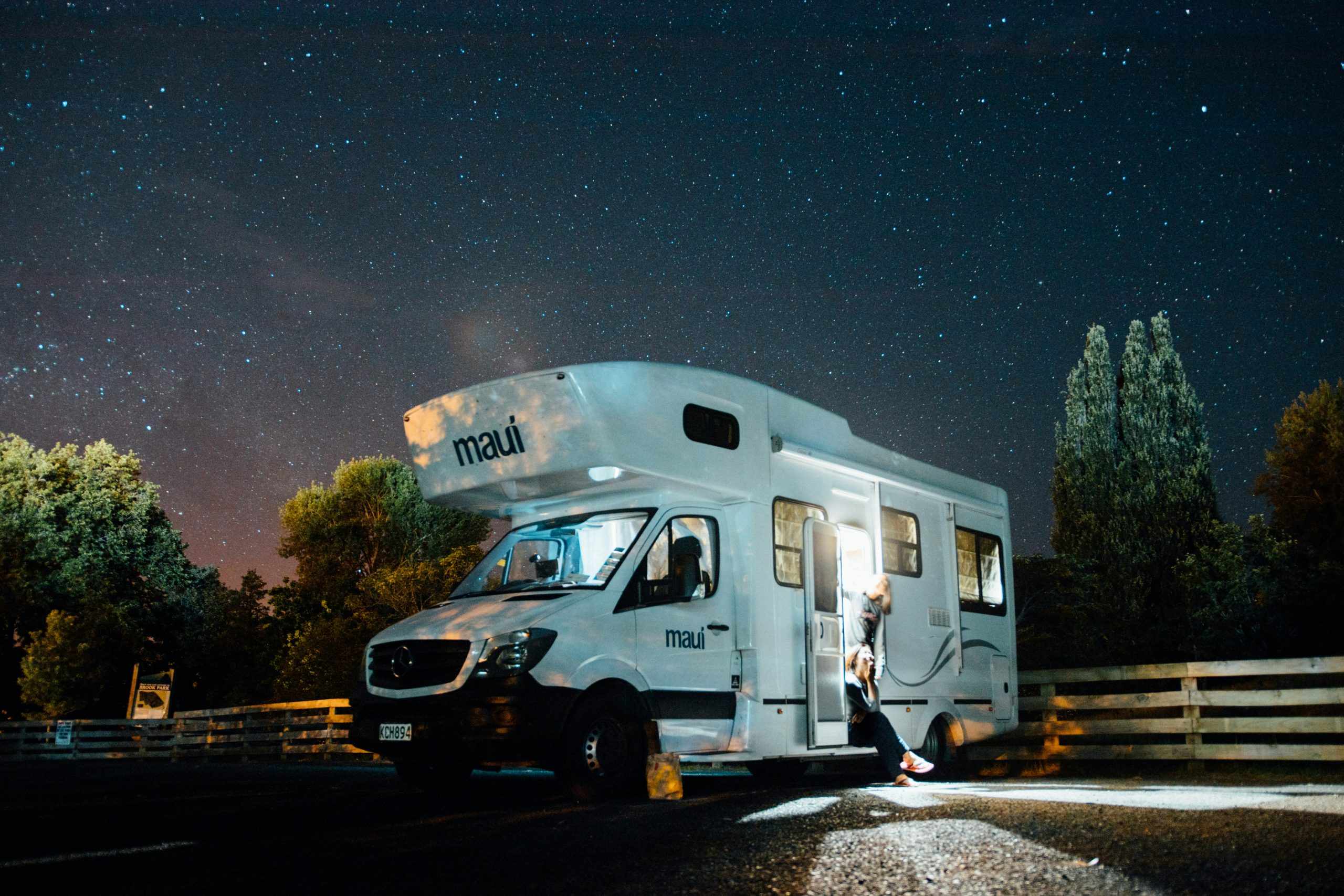There is a saying: “No man can step in the same river twice.” Either the water in the river flows on, or the person who is doing the stepping has changed. Sage advice, until you consider rivers that have frozen—then I suppose one could step in the same river as many times as they want.
Some take to the ice on skates or with cautious footprints. Others are more daring and traverse ice in a vertical direction—away from the safety of the ground and up to where they are at the mercy of gravity—with the sport of ice climbing.
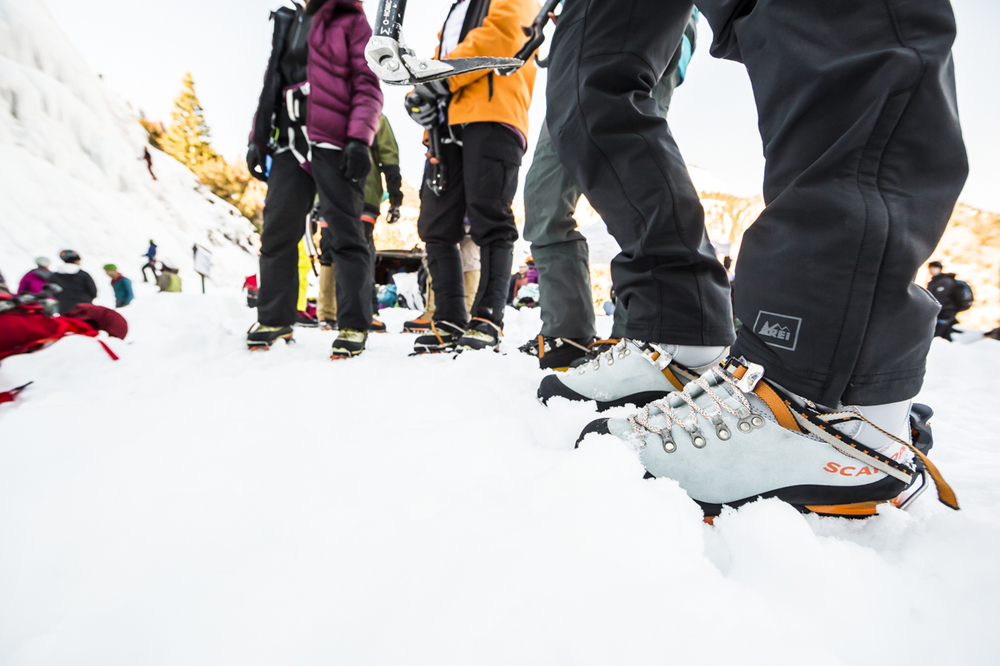 Wait, what is ice climbing?
Wait, what is ice climbing?
As simple as you think it is: ice climbing is the sport of climbing on glacial walls or frozen waterfalls. Athletes use techniques and safety equipment similar to traditional rock climbing—belay ropes, helmets, anchors—and add ice axes and crampons to their gear bag so they can really dig into the ice.
In recent years, competitive ice climbing has come off the rocks and back onto traditional climbing walls. Climbers will still use crampons, ice axes, and safety equipment to climb a set route, hooking into climbing grips with their axes—a technique known as “dry tooling.” This keeps the playing field fair, but competitive, as ice is often known for crumbling when it is smashed with sharp, galvanized steel.
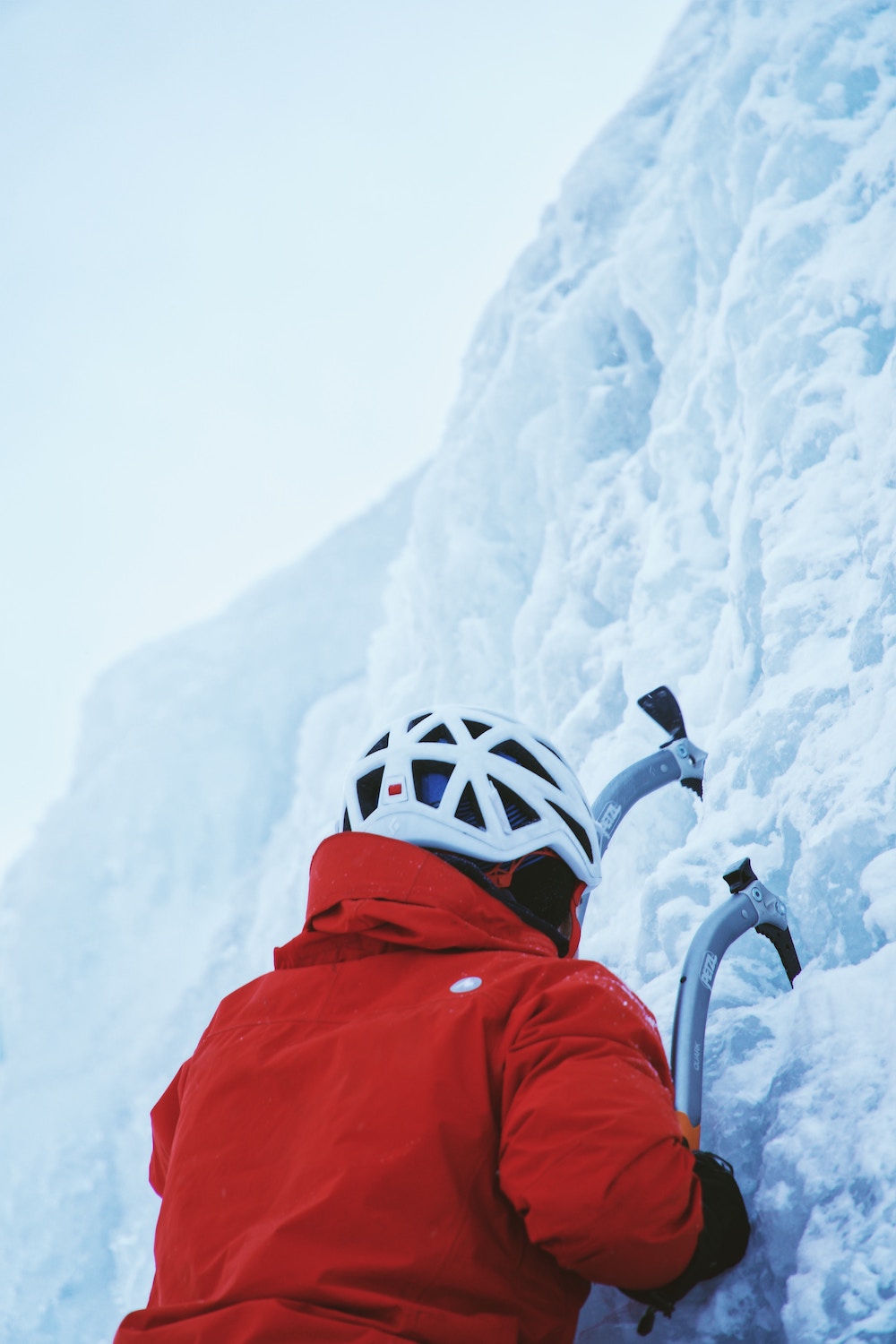 But…why?
But…why?
As someone who once broke his collarbone shoveling snow off an icy driveway, I need to make the upfront and direct advisement that climbing on ice is not something to try without expert guidance. Logically, there is little to like about ice climbing. Getting sprayed in the face with ice flecks, having rivulets of water find their way into the folds of your warm, downy coat. Also, ice breaks and falls with the consistency and speed of a well-formed rock.
But, it’s a different kind of challenge. Those who have been practitioners for years can even attest to it being an awesome sport to partake in. To slap spikes on your boots and sling around medieval looking hooks into a slab of ice is nothing short of exhilarating. The surface is far more dynamic than rock, and the routes are not determined by thousands of years of erosion, but by a single, chilly evening. The predictability of ice adds to the thrill, and the danger, as only the places which have consistently freezing temperatures are safe enough to try ice climbing, much less host a festival.
Not ready to risk it? Why not dip your toe into the freezing water (or relaxing hot spring?) of a mountain town during an ice climbing festival? Even if you aren’t looking to step into crampons and tie off a belay, traveling to ice climbing festivals as a spectator can be a sport in and of itself. Many of the notable ones feature vendor booths, film screenings, and even live music in addition to the climbing expos and competitions.
Here’s a few to add to your calendar this season:
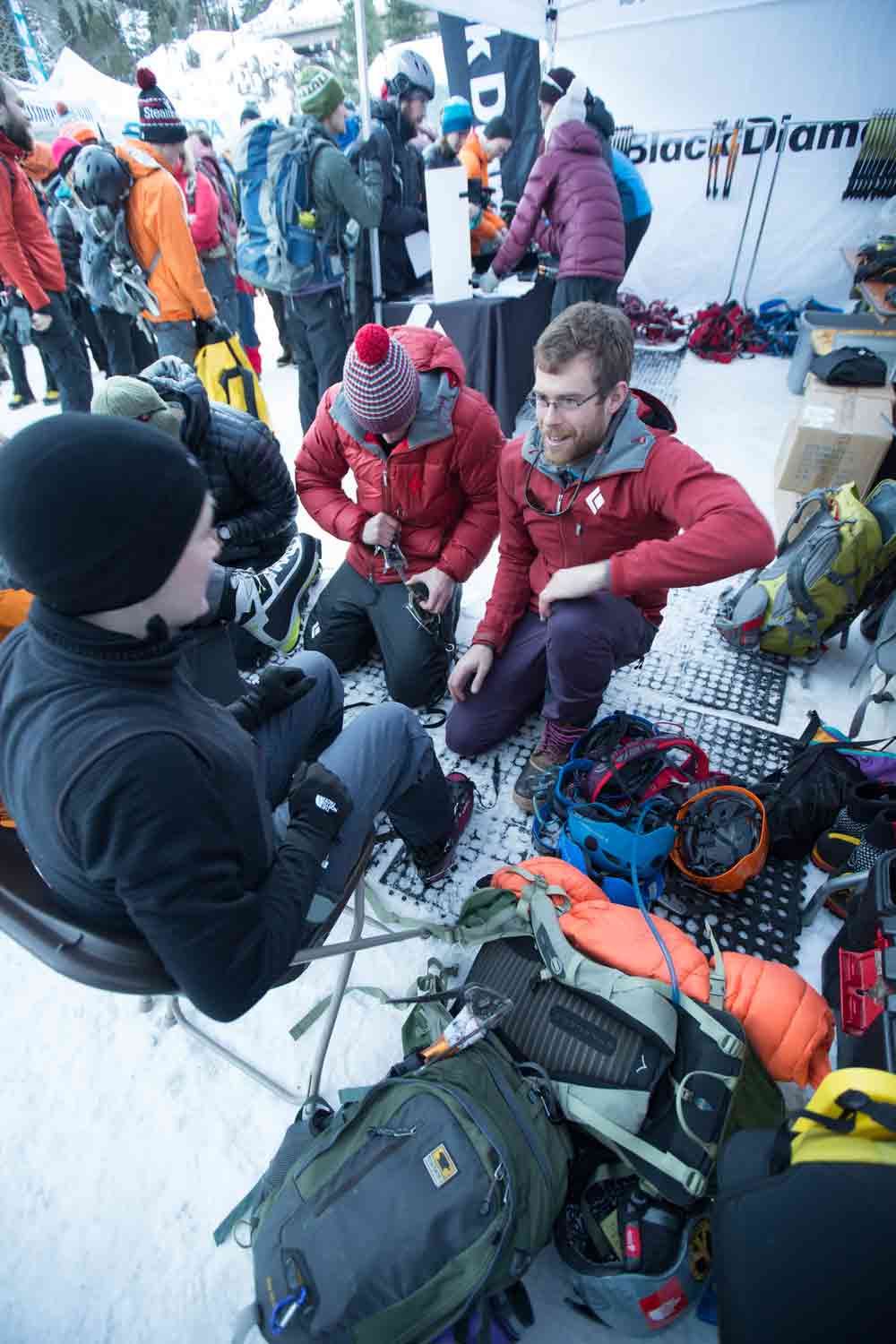 Bozeman Ice Fest; bozemanicefest.com
Bozeman Ice Fest; bozemanicefest.com
While the festivities may take place in Bozeman, the climbing takes place in Hyalite Canyon, about fifteen miles outside of town, on the frozen offerings of Hyalite Creek. The Ice Climbing Alliance, a nonprofit dedicated to spreading the good word of the sport, hosts on-ice instruction for new and experienced climbers alike.
Grab your tickets and book your lodging early. This one is scheduled for Dec. 11–15, 2019.
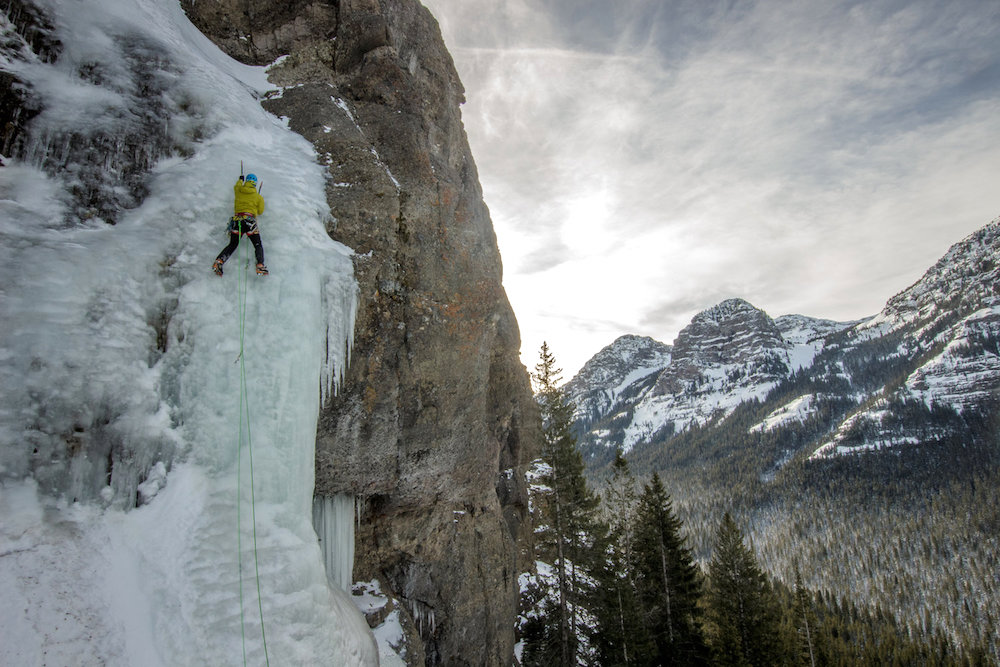 Ouray Ice Fest; ourayicepark.com
Ouray Ice Fest; ourayicepark.com
The high Rockies are home to some of the most epic seasonal sports around. On one side of the mountain are the much sought-after slopes of Telluride. On the other side, the Ouray Ice Park. Located in the Ouray Town Center, the Ice Park freezes over every year to provide ample room for ice climbers of all skill levels from all over the world to dig in.
The Ouray Ice Fest is scheduled for January 24–27, 2019. Lodging space is limited in the town of Ouray, as it is somewhat remote. Also be sure to check road conditions as seasonal snowfall can make for precarious driving, avalanche danger, or impassable roads.
Cody Ice Climbing Festival; https://bit.ly/2SIbQz5
While the phrase “Winter in Wyoming” may draw an image of blustering cold winds howling across an empty, snow-drifted field, there are many high-altitude locations in the western stretch of the state that offer plenty of challenge. The town of Cody is proud to be one of those spots.
Located up a stretch of the Shoshone Canyon, the Cody Ice Climbing Festival has been steadily growing since 1998 as one of the finest fests for experienced climbers. Using frozen water that flows from the Buffalo Bill reservoir, canyon walls ice over and offer loads of climbable real-estate for skilled explorers. The Ice Fest is typically scheduled in early February.
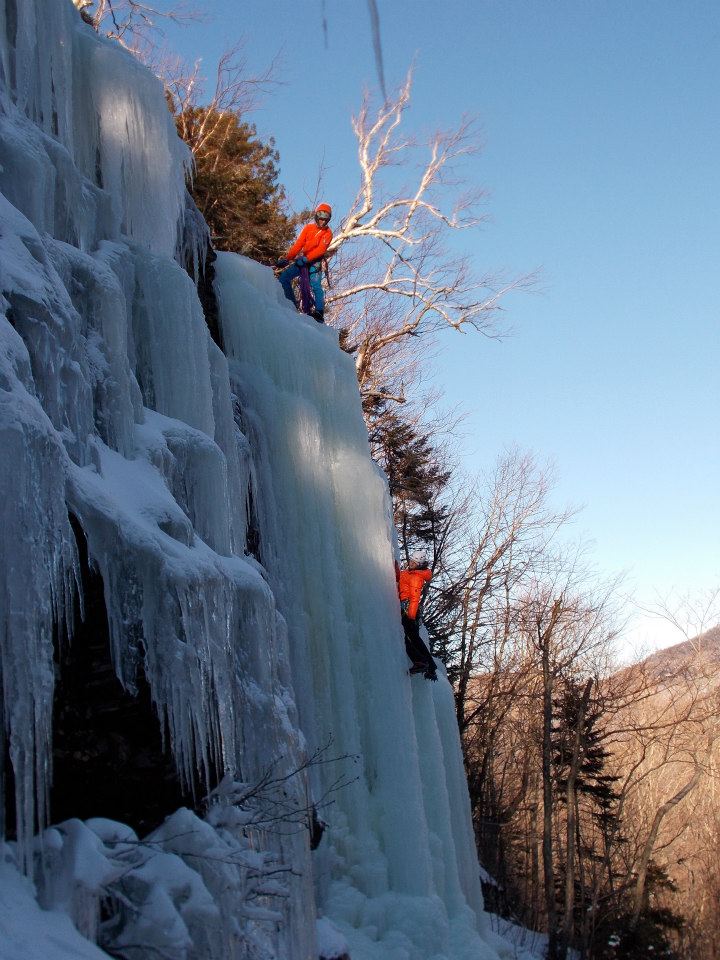
Smuggs Ice Bash; smuggsicebash.com
The 13th annual Smuggs Ice Bash is happening January 25–29, 2019 in Smuggler’s Notch, Vermont. Nestled in the high altitude mountains near the Canadian border, Smuggler’s Notch is known for both extreme sports and luxury resorts. Organized by Petra Cliffs Climbing Center and Mountaineering School based in Burlington, Smuggs Ice Bash is working to be one of the finest ice climbing festivals in the country by providing a small, intimate setting designed for climbers looking to test out their chops.

